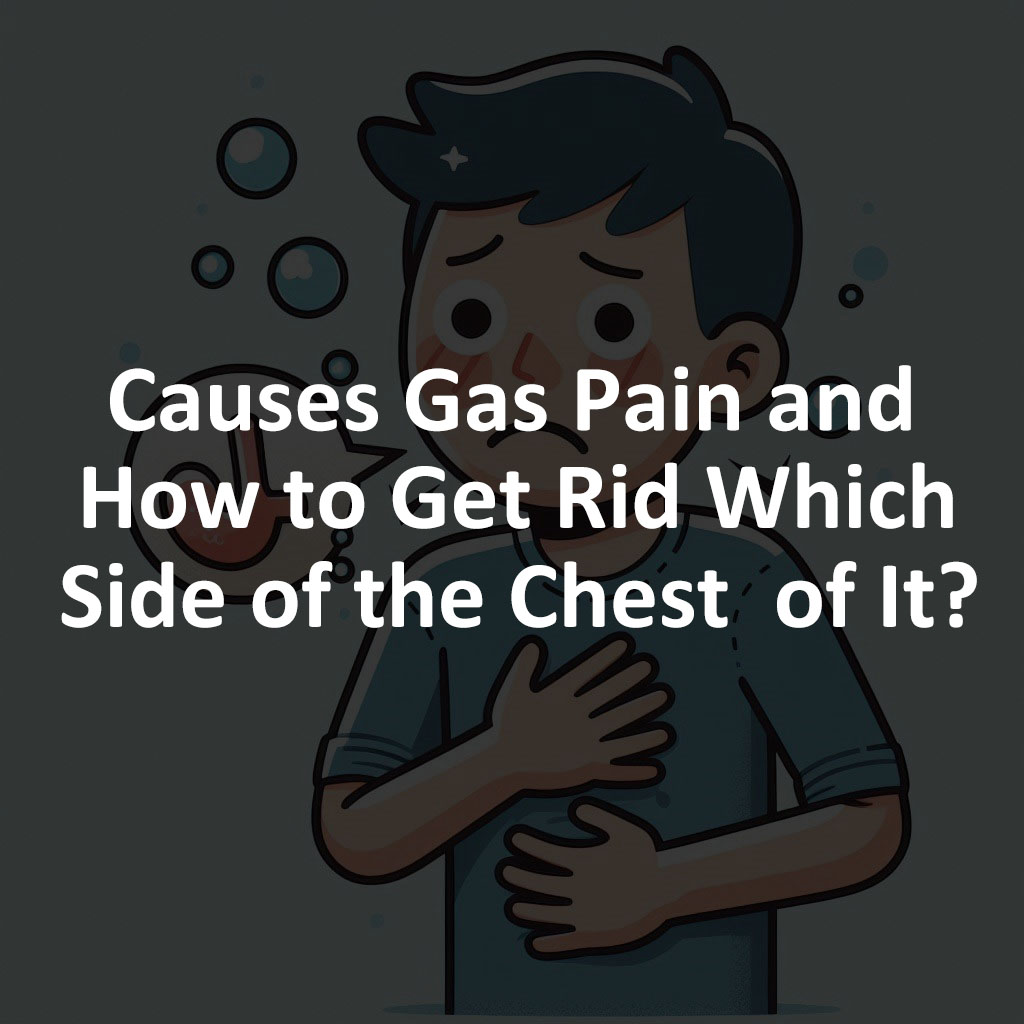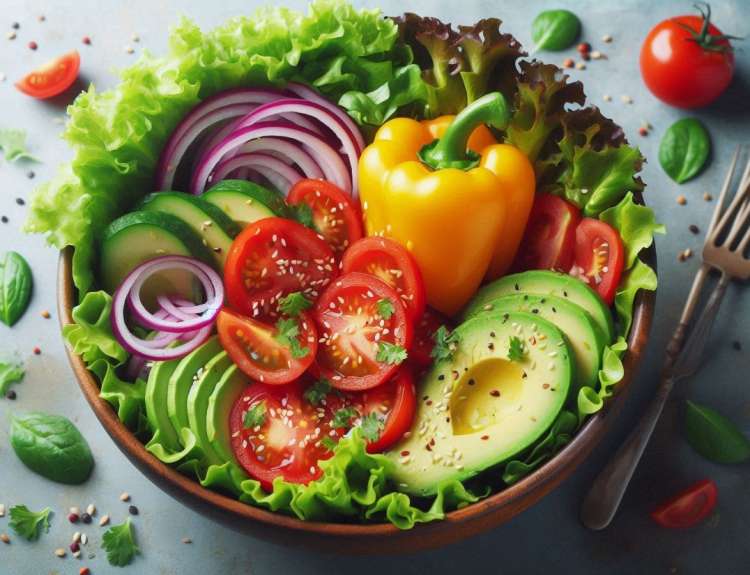Introduction
Isn’t it true that gas pains can be somewhat bothersome? They can surprise you by appearing out of nowhere, especially when they begin to play hide-and-seek inside your chest. However, what actually occurs when you start to doubt your most recent meal due to intense pain? We’ll explore the topic of gas pain in this post, paying special attention to which side of the chest is typically affected and—more importantly—how to relieve the pain.
What Are Gas Pains?
Excess gas accumulates in the digestive tract and causes pressure and discomfort, which is the source of gas pains. However, they occasionally appear in strange places, like your chest. It’s critical to comprehend the causes of it as well as practical management techniques.
Importance of Understanding Gas Pain Location
Identifying the side of your chest where the gas pain is coming from might help you determine whether the problem is with your digestion or something more serious, like heart troubles. Let’s dissect it now!
Understanding Gas Pain
What Causes Gas Pain?
Gas can accumulate for a number of causes, such as breathing in air, consuming foods that release gas (like beans!), or even having a digestive system problem. When that gas begins to bubble, it might cause some quite unpleasant feelings.
Symptoms Associated with Gas Pain
Bowel movement abnormalities, cramps, and bloating are common accompanying symptoms. But why is there a problem with chest pain specifically?
Identifying the Side of Chest Involved
Left Side Chest Pain
Gas accumulation on the left side can occasionally feel concerning because it may resemble problems with the heart.
Right Side Chest Pain
On the other hand, right-sided gas pain can feel quite different and is frequently associated with liver discomfort or gallbladder problems.
Why Location Matters
Knowing the difference between left and right chest pain may help you determine whether your problem is something as simple as gas or as serious as something that needs to be checked out by a doctor.
Gas Pain in the Left Side of the Chest
Causes of Left-Sided Gas Pain
Problems in the stomach or intestines could be the cause of left-sided gas pain. Consuming specific foods, such as cabbage or fizzy drinks, may be the cause of this!
Symptoms and Related Conditions
Sharp pains could be felt, especially when lying down, bending, or moving. It is important to pay attention to any signals that may indicate more serious conditions as these can occasionally be suggestive of them.
Gas Pain in the Right Side of the Chest
Causes of Right-Sided Gas Pain
Right-sided gas pain is frequently associated with gas accumulation in the liver or gallbladder. I assure you that there are plenty of complaints in this area!
Symptoms and Related Conditions
A dull discomfort or pressure could be felt. This discomfort is sometimes misdiagnosed as stomach problems or even cardiac problems.
How to Differentiate Between Gas Pain and Other Conditions
Heart Problems
The heart is an important factor to take into account. It could be time to pick up the phone and ask for assistance if the chest discomfort feels unlike anything you have ever felt.
Respiratory Issues
A searing ache can sometimes make you feel as though your breath is being taken away. Keep an eye out for whether taking big breaths or coughing makes the pain worse.
Gastrointestinal Distress
Understanding the type of pain you are experiencing is also crucial. Yes, it’s definitely gas-related if it’s accompanied by bloating or changes in bowel habits!
Home Remedies for Gas Pain
Dietary Changes
Begin by maintaining a food journal. Keep a journal of your meals and any instances of gas pain to assist you identify potential culprits. Try avoiding meals that have been highly processed!
Herbal Remedies
Peppermint, chamomile, and ginger tea can all help reduce those feelings. They taste great in addition to being calming. Win-win!
Lifestyle Modifications
Want to boost the level of your relief? Make an effort to move more; walking aids in the transit of gas via the digestive system. Additionally, mindfulness techniques like deep breathing might lessen stomach problems brought on by stress.
When to Seek Medical Attention
Signs That Require Immediate Care
It’s better to be safe than sorry if you have significant pain, persistent discomfort, or if you have nausea or dyspnea along with your symptoms. Have yourself examined!
Importance of Professional Diagnosis
Even though self-care techniques are often quite effective, it’s advisable to see a doctor occasionally to rule out any significant illnesses.
Conclusion
Being aware of the side of the chest that is affected by gas discomfort in particular might help you take control of your health and lessen your concerns. You have options when it comes to determining when to see a doctor, adjusting your diet, or doing some at-home treatments. Recall that gas is a normal process. Although it can be an inconvenient interruption, managing it can result in a more comfortable life. You may be able to take charge of your health and reduce your anxiety if you are aware of the specific side of your chest that is afflicted by gas discomfort. It’s up to you to decide when to visit the doctor, change your diet, or administer some at-home remedies. Keep in mind that gas is a typical process. Despite the fact that it may cause inconvenience, coping with it can lead to a more comfortable existence.
FAQs
What typical reasons do people get gas pain?
Swallowing air, specific food choices (e.g., beans, fizzy drinks), and digestive problems are common causes.
How can I get rid of gas discomfort fast?
Gentle strolling, heating your stomach, or thinking about over-the-counter drugs for gas relief are some efficient rapid relief techniques.
Is gas pain indicative of a more serious issue?
Yes, even though chest discomfort is mostly innocuous, it’s essential to see a specialist if it’s severe or prolonged as this could signify major health issues, such cardiac difficulties.
Do certain foods make gas discomfort better or worse?
Beans, broccoli, and dairy products are among the foods that aggravate gas pain; probiotics, ginger, and peppermint can help reduce symptoms.
Is it okay to work out when having gas pain?
In fact, light activity, such as yoga or walking, can help reduce gas pain; nevertheless, if you’re unsure, listen to your body and see a doctor.





